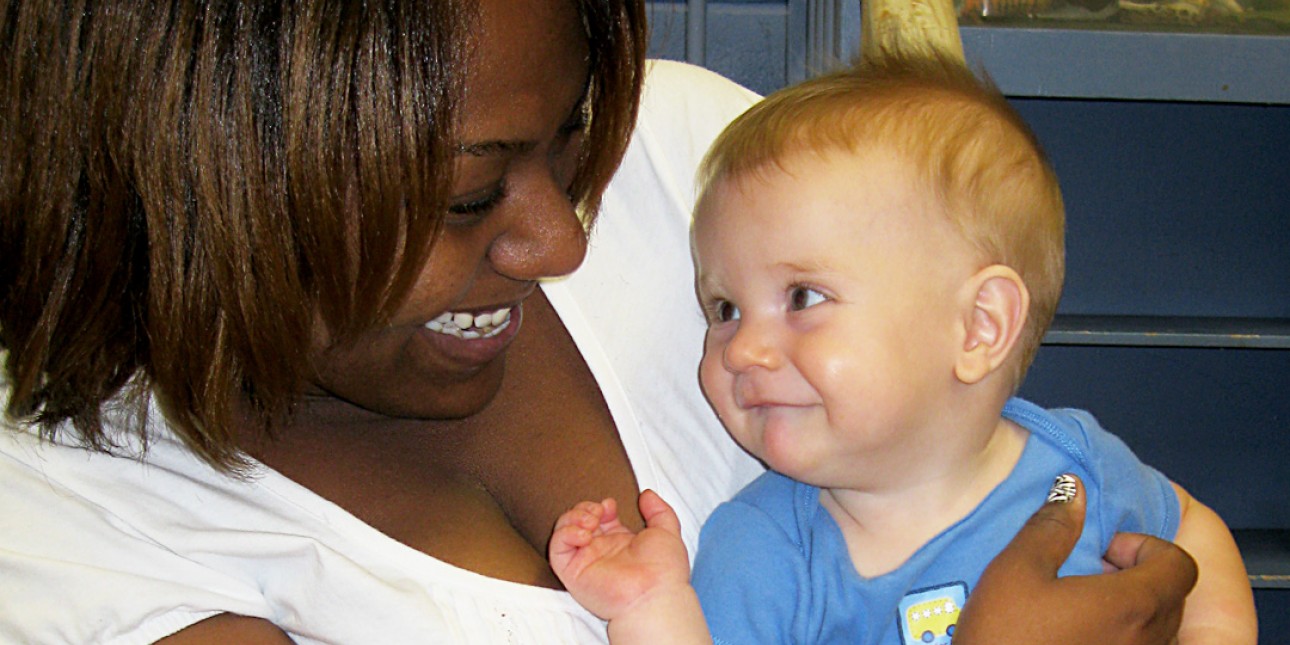February Message from Deb Green

What You Might NOT See at PIC...but look closer!
Dear PIC families and friends,
I recently visited an infant/young toddler classroom and witnessed what I felt was a beautiful interaction between one of the teachers and a 3-month old baby. As many of the children were having a morning snack and a few others were sleeping, a wide-awake baby was on the soft carpet, leaning against his pillow. As he looked around the room, he caught the eye of his teacher sitting next to him and slowly reached for her extended hand. He first grabbed her full hand, and then with great determination, he reached for each of her fingers and individually clutched each one. His teacher spoke to him in a quiet voice, giving words to his actions and keeping eye contact. In fact, for many minutes she never broke her gaze with the baby. The baby’s return of smiles spoke volumes.
I observed a 3-year old having a very developmentally appropriate temper “episode” over not getting the toy she wanted from a friend. The classroom teacher verbally acknowledged the child’s anger and her disappointment, offering both a hug and a quiet space where she could continue to cry. As tantrums often do, this one took a while and continued as the children walked down the hall. The still-quite-angry child continued to cry and her teacher quietly said, “Would you like to squeeze my hand to help get your anger out?” And she did.
I visited a classroom of four-year-olds and observed the teacher strategically navigating a discussion about fairness that apparently began over who was going to choose a story to be read aloud that morning. While the squeals of “That’s not fair” were escalating, the teacher chose not to offer a solution but to ask the children how they felt the problem could be solved. Their ideas were heard and respected and the class decided together which plan they would implement.
These observations of teachers in action may seem widely disparate, but in fact each exemplifies the importance of developing strong social and emotional connections. When children learn to give and accept love, when their emotions are acknowledged, and when they are allowed a voice in solving problems, they are learning to relate well to others.
Positive relationships with knowledgeable and caring teachers are key in developing trust, empathy, compassion, generosity and conscience. We know that building a strong and successful social and emotional foundation plants the seeds for each child to experience a happy and productive life.